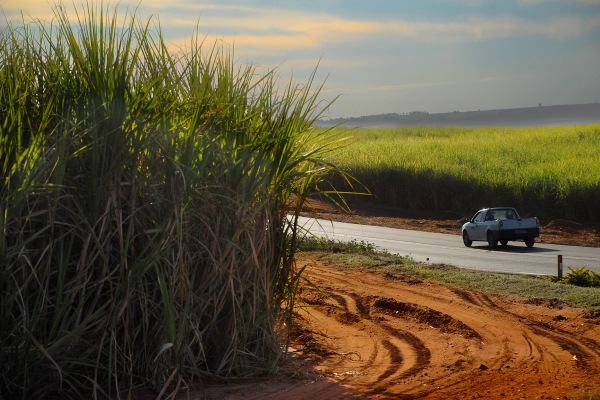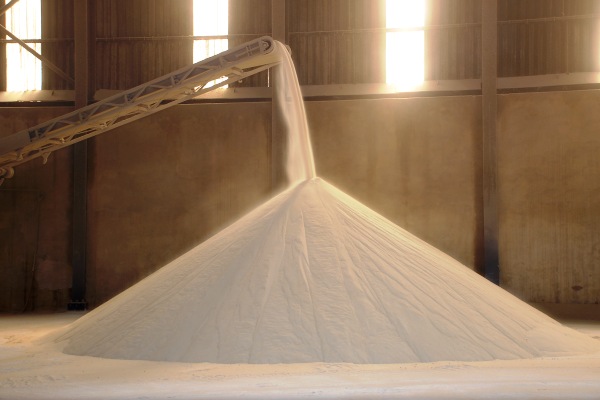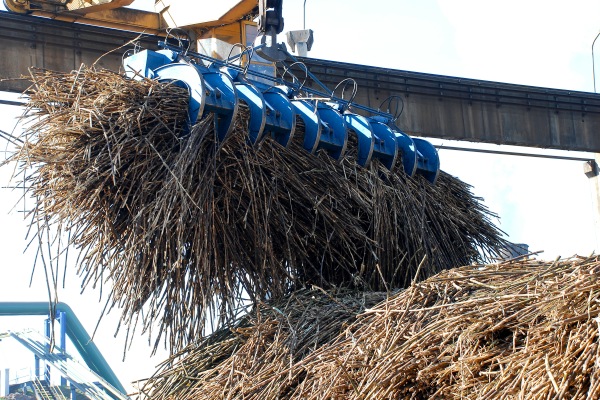Brazilian Sugar Industry | Czarnikow: Sugar and Ethanol Trading
Tiago Medeiros, Regional Director of Czarnikow
Tiago Medeiros gives an overview of the sugar and ethanol sector in Brazil and presents Czarnikow, a British sugar and ethanol trading company that was founded over 150 years ago. Czarnikow operates on three main platforms: trading, supply chain management and advisory. The company is present in 89 countries and has more than 400 clients worldwide.
Interview with Tiago Medeiros, Regional Director of Czarnikow
Could you give us an overview of the sugar and ethanol sector here in Brazil?
Brazil, in line with many other commodities such as orange juice and coffee, is a huge producer of sugar. We produce approximately 38 million tons of sugar and we export 26 million tons every year, which accounts for 50% of the world market. Brazil has become the leader in the market over the past 20 years due to the failed ProAlcool program, which left more sugar cane available for sugar production, the currency devaluation and the sugar market deregulation in Brazil.
Czarnikow has lived through two world wars, several financial crises, the failure of entire sugar industries such as the Cuban industry, and the emergence of new economies such as China and yet we are still a very profitable company that continues to reinvent itself.
The Brazilian sugar industry is unique because it is one of the most integrated industries in the world. In Brazil, companies in this sector have assets that range from the farm to the port logistics. It is a very capital-intensive industry.
Could you tell us a bit about your company and group, not only worldwide but also particularly here in Brazil?
Czarnikow is a British company that was founded over 150 years ago by Mr Caesar Czarnikow. Today we are a sugar and ethanol trading company. We operate on three main platforms: trading, supply chain management and advisory. We have 12 offices around the globe and 178 employees. We operate in 89 countries and we have more than 400 clients. Our yearly turnover is approximately 3 billion dollars, which is a result of 4 million tons of sugar traded every year. We differ from other trading companies in that we adopt an asset light model. Most of our access to logistical infrastructure is done by partnerships and leasing agreements. We do not own such assets. Czarnikow also stands out in the market because of its analysis capability. We have the most respected and the largest analysis team in the world, which makes us extremely strong in that respect and gives us a competitive edge to operate in the market. Czarnikow is also known for its financial advisory capability; we operate on an investment banking level and find ourselves competing with investment banks on a regular basis particularly in terms of MNA and structured financial advice.

What is the company´s growth strategy here in Brazil?
The perspectives are very encouraging and we have a very clear vision of what we want to do in Brazil in terms of our growth perspective. Essentially, we are looking at three areas. The first area is bulk, raw sugar trading, and is our main activity today. We originate about 1.5 million tons of sugar in Brazil every year and we hope to reach about 2.5 million tons in the next five years. This will result from the much-improved infrastructure that we have recently developed, as well as the new payment solutions, risk management products and advisory services that we are providing for our clients.
The second area that we wish to develop is a wider distribution. Czarnikow is very well known for its ability to supply refined sugar to industrial consumers around the globe. In some areas, such as the Middle East and Africa, we have a market share of over 80%. In Brazil, we have not even scratched the surface yet. This is a new product in this country. We want to begin supplying this service with supply chain management to large industrial users here in Brazil.
The third area of our strategy is regarding our advisory services, particularly in terms of corporate finance. In the past 5 years, we have done more than 3 billion dollars’ worth of transactions in the sugar and ethanol sector alone. Today this sector deals with low margins and high gearing. The cycle of the business is not aligned with its capital structure. Our job is to help our client find adequate capital structures or equity to be in line with the business that they are running. Additionally, we also have the mandate to acquire some strategic assets like logistics or distribution facilities, which give us a competitive edge to achieve our vision.
What are the main challenges that your company has to face?

Our main challenge is credit exposure. As I mentioned, the low margins, environment and high gearing put the producers in a difficult and challenging position from a continuity risk point of view. During the last five years, more than 45 units in Brazil have shut down. Dealing with producers in this situation means that we are taking counterpart risks in our business. An in depth assessment of our clients makes a big difference in our ability to perform.
Another important challenge is logistics. From inside the farm to the farm gate, Brazil is very efficient but from the farm gate to the port, Brazil is very inefficient. Therefore, an improved logistical infrastructure will make our business more successful.
Additionally, another challenge that we face is consolidation and integration. More and more producers are looking for ways to integrate with trading companies, distributors and final consumers in order to have a control over the complete value chain. From a trading company´s point of view, we continue to look for opportunities to team up with clients so that we can work together to compete in a more consolidated and integrated environment.
What is your vision for the future of the company in the next two or three years?
The future looks very interesting indeed. Czarnikow has lived through two world wars, several financial crises, the failure of entire sugar industries such as the Cuban industry, and the emergence of new economies such as China and yet we are still a very profitable company that continues to reinvent itself. Moving forward there will be many challenges for sure, but we have an excellent team in place to deliver our growth ambitions. We want to be the preferred dealer of raw sugar for producers around the world. We also want to move our wider distribution business and value chain management into new economies especially China, Brazil and European countries that will have a new regime from 2017 onwards. We also would like to be the most respected company in terms of our market and corporate finance advisory departments.

How do you see the future of the sector? Do you see any big changes happening in the next 5 years?
We do see a big change coming. For the past 3 years, we have been living in a surplus environment where prices have been kept low and margins pressured. We are now reaching a point where we should have production levelling off and consumption growing, which means we are going into a deficit cycle. That will result in higher prices, which is good news for our clients and it will result in higher volatility, which is good news for trading companies. Therefore, I think that we are moving into a better business cycle.
Can you tell us a bit about the investment or partnership opportunities in the company and in the sector?
I can´t comment about investment opportunities in the company because we are privately held company but in terms of investment opportunities in the sector as a whole, this is a very good moment. We are approaching a time of deficit cycles, which means a possible revaluation of asset prices.
There is huge potential for investment in the area of infrastructure for this sector. Brazil needs investment from warehousing to transportation to port operations. Any investment in those areas should be excellent. If you look down the infrastructural chain, we also have opportunities is electricity generation. Every day, the press is talking about possible power cuts in the country because of the low rainfall levels during the past months. Biomass electricity generation is a perfect match for this risk because this electricity can be produced during the dry season when the mills are working. Therefore, biomass electricity is a very interesting and promising business to consider. I think it is definitely the right time to be looking at investments in Brazil.
What message or advice would you give to an investor that is interested in coming to Brazil?
The time is right to come and invest in Brazil but be aware that the sugar and ethanol value chain is very long and complex. Before you start here, make sure you have adequate capital structure and management capacity. Good luck.
FAIR USE POLICY
This material (including media content) may not be published, broadcasted, rewritten, or redistributed. However, linking directly to the page (including the source, i.e. Marcopolis.net) is permitted and encouraged.